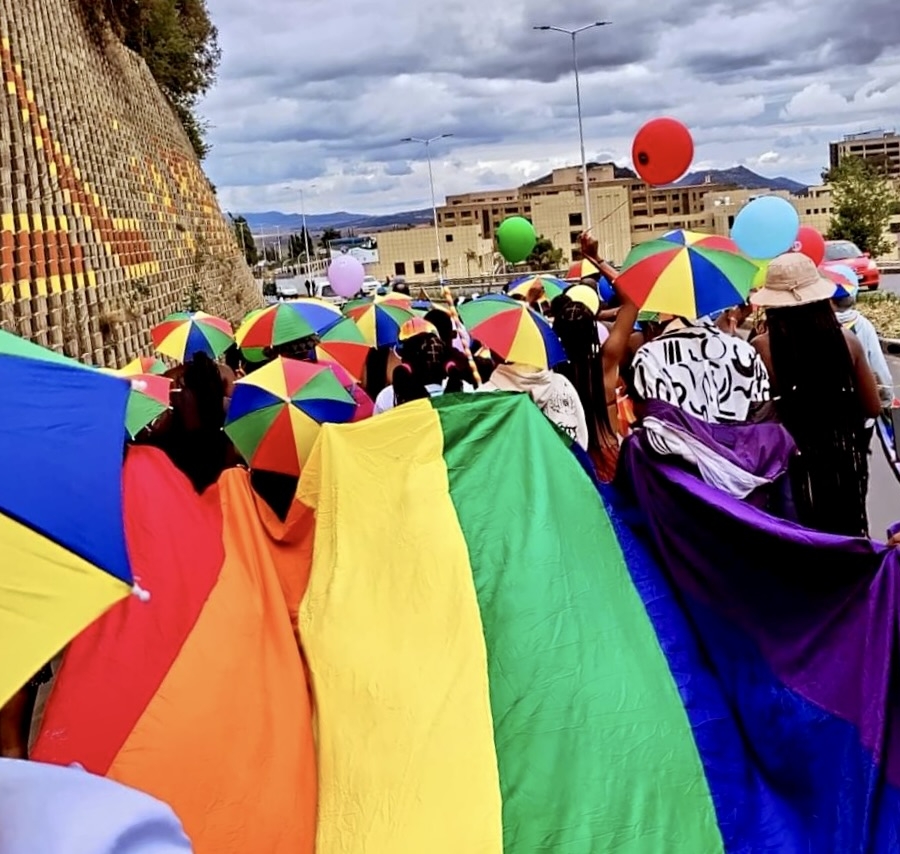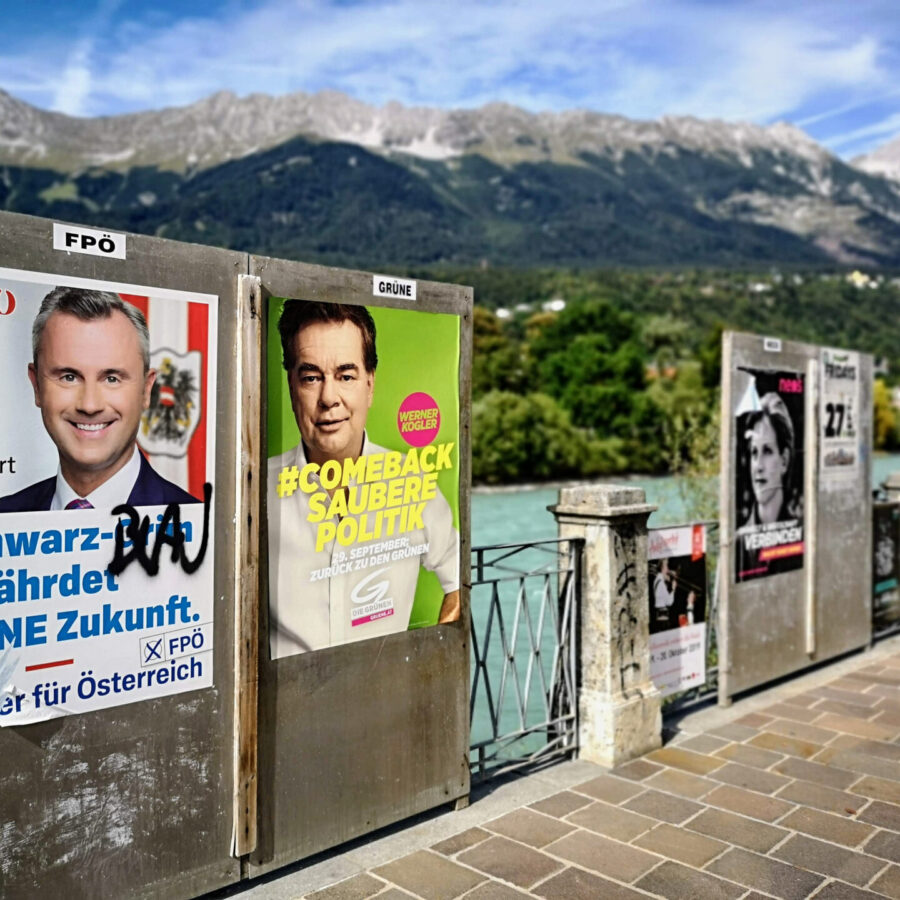
On Saturday 9th November, one of the highest Prides in the world brought a carnival of colour and cheer to the centre of Maseru, capital of Southern Africa’s ‘mountain kingdom of Lesotho’. Popularly called the ‘kingdom in the sky’ due to its high altitude, Basotho Pride organisers brought queens and allies alike together in a call for higher attitudes towards inclusivity, visibility and progress – especially significant this year as Lesotho celebrates its Bicentennial, the 200th Anniversary of the nation’s founding.
Organised by People’s Matrix, Lesotho’s leading LGBTQI+ network – who bring together members and community groups from across the country’s ten districts – Lesotho Pride 2024 staged a 24-hour programme of fun, solidarity and celebration, kicked off with a “Peace March” set off early morning from the Maseru Club, adjacent to the United Nations HQ for Lesotho, and marching through the capital’s central Kingsway. Participants united under the banner of “embracing all our unique identities, continuing the fight for equality and love for all.” Marking Lesotho200, the march included many young people showcasing traditional Basotho costumes, remarked on by one marcher as a big moment emotionally: “it’s so important seeing LGBTIQ identity integrated into Lesotho’s traditions, it really humanises and brings Pride into our national story.”
Basotho marchers were joined by allies from Wales, building on longstanding friendships kindled between the twinned countries through Dolen Cymru Lesotho, the Wales Lesotho Link. In a show of solidarity staff, trustees and volunteers marched in shirts worn at Cardiff’s ‘Pride Cymru’ in June earlier this year. The world’s only formal ‘nation to nation’ twinning also celebrates its 40th Anniversary this year; exchanges over the decades have included many human rights initiatives, including LGBTQI+ campaigners. It is hoped to grow more new partnerships between LGBTQI+ organisations and communities as part of the shared 40th and 200th anniversaries (for the twinning link, and the Lesotho nation).



Traditionally a peace-loving culture, Basotho LGBTQI+ people and communities nevertheless face a range of challenges. Giselle Ratalane from People’s Matrix gave a flavour of campaigns and everyday concerns for ordinary citizens ‘behind the banners’ of this year’s Pride march in Maseru:

“Averting poverty, having job security is a major driver. You can be qualified but not be hired, as there’s presently no legislation protecting LGBTQ people from that kind of discrimination. If you are hired, the labour code updated this year does now have protections covering sexual orientation and gender identity – a recent achievement – but of course that helps mainly if you’re already in work.
Disenfranchisement in schools, where some teachers can make things unbearable for queer students to participate in learning, can lead to dropping out. And there are some jobs that we gravitate towards as a community, often not by choice but survival – such as sex work – that are sometimes dehumanised by society. A member of the transgender community was recently murdered whilst doing sex work, over a disagreement; taking someone’s life, shows there is a way to go in challenging hate crime and discrimination. There is also a need to recognise gender identities, as many hate crimes go unrecorded.”
HIV AIDS and health care are also widespread challenges for which People’s Matrix and their partners offer support, organising regular community clinics and enabling individuals to navigate access to health care. Giselle flagged up the importance of building alliances across the Basotho LGBTQ community and working together – as exemplified by this year’s Maseru Pride, for which 3 organisations pooled their energies and resources to make it a success.
Asked how international allies can help support and show solidarity with Lesotho’s LGBTQ+ movement, Giselle remarked: “come along to next year’s Pride 2025! But on a day-to-day basis, donating money towards the voluntary work going on in Lesotho, will enable us to reach and involve more communities. We’re very grateful for any contributions, via our website www.thematrix.org.LS“
Cath Moulogo, attending with Dolen said, “Lesotho is a small nation with a big heart – much like Wales! – which is why we’re so proud to join in solidarity to celebrate such a fantastic Lesotho Pride. It’s been privilege to join them for their 200th birthday and to lend our voice to calls for further progress on Lesotho LGBTQI+ rights into the future.”
Joanna Jonas, Chair of Dolen Cymru Lesotho Link – who lives in Maseru herself, and participated in the Pride march – said “Lesotho Pride 2024 stood as a beacon of courage and resilience, reminding us that the journey toward human rights for all is global and solidarity knows no borders, hence I am proud and moved to have joined the march and celebrated, in solidarity, LGBTQIA+ rights in Lesotho alongside my colleague from Wales. Together we are building a world where love and identity are celebrated and not condemned.”
For anyone who would like to be involved with Dolen Cymru Lesotho in the UK, please contact swyddfa@dolencymru.org


Written by Craig Owen, Taith Exchange Volunteer with Dolen Cymru, Nov 2024
hi






